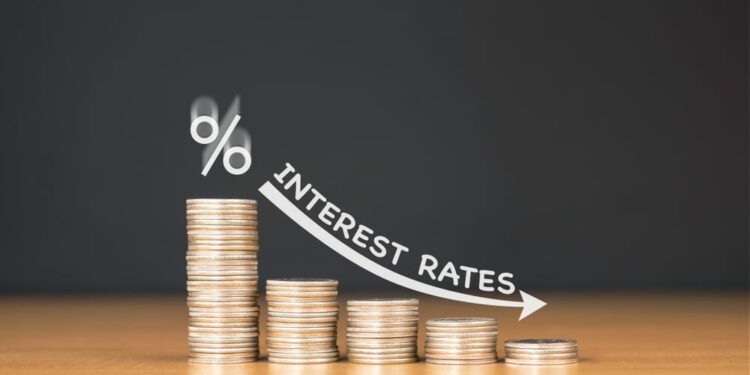GAB CEO emphasizes link between interest rates and economic stability
Mr Awuah’s remarks shed light on Ghana’s banking landscape, where interest rates remain closely tied to monetary policy decisions and economic indicators.
- Advertisement -
Chief Executive of the Ghana Association of Banks (GAB), John Awuah, has emphasized the necessity for a direct correlation between interest rate adjustments and the prevailing economic landscape.
Speaking on PM Express on Thursday, Mr Awuah cautioned against coercive measures to drive down interest rates in the absence of supportive economic fundamentals.
- Advertisement -
“Instances where the economy had turned around with some variables improving, the banks did moved quickly to review their rates. We should not try and get to that era where interest rates are forced down when it is not backed by the economic fundamentals”, he warned.
- Advertisement -
In reference to recent monetary policy actions, including a 100 basis points reduction in the policy rate by the Monetary Policy Committee, Mr Awuah noted that banks have historically aligned their lending rates with changes in key economic variables. Despite fluctuations, he pointed out instances where financial institutions adjusted their rates, particularly for loans with variable terms.
The discussion delved into the impact of persistently high-interest rates on Ghana’s commercial banks. Despite the average interest rate climbing to 30.19% by the end of 2023, Mr Awuah dismissed notions that banks profit significantly from elevated lending rates.
- Advertisement -
He attributed higher interest rates to increased default risks, stressing the importance of maintaining a balanced approach to lending practices.
“I don’t think it’s fair to link the profits that commercial banks are making purely to the high interest rates. For instance every, GH¢100 given out by commercial bank there is a likelihood that GH¢20 will not be paid back”, he stated.
Mr Awuah’s remarks shed light on Ghana’s banking landscape, where interest rates remain closely tied to monetary policy decisions and economic indicators.
Source:norvvanreports
- Advertisement -


